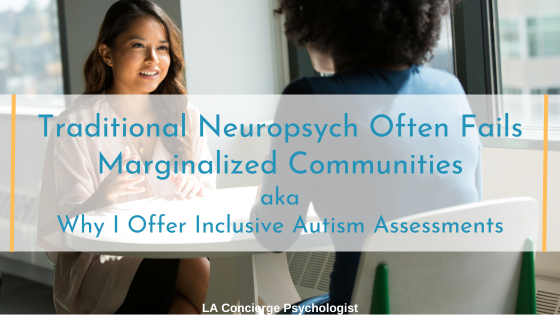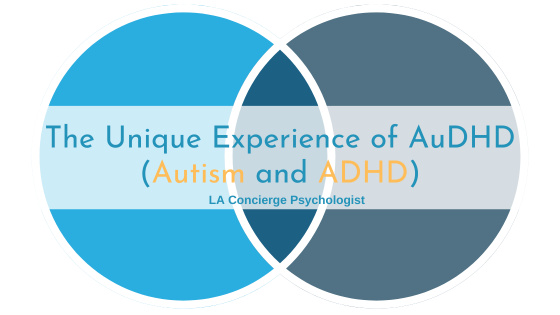While autism awareness has improved to some extent, I am sometimes surprised by the ignorant questions I see online and even in real life. When people ask questions like “Do autistic people cry?” or “Can autistic people get married?” it shows me that outdated, misguided, and discriminatory views of autism persist. Sadly, I’ve even seen mental health professionals espouse inaccurate views of autism. Due to inaccurate and stereotypical portrayals of autistic people in the media, some people still believe that all autistic people are emotionless, hopelessly awkward, or somehow “less than” their peers.
This lingering stigma creates significant obstacles for autistic people. Thankfully, psychology researchers at The University of Texas are searching for ways to change that. Their latest research on reducing public bias against autism suggests the potential effectiveness of public autism education.[i] Given some other researchers’ goal of finding an autism “cure”, this new autism study is a refreshing approach to autism awareness that promotes neurodiversity.
Some psychologists suggest that autistic people should hide their autistic traits to improve interactions. The University of Texas study suggests a neurodiversity-affirming alternative. Rather than placing responsibility for positive social interactions solely on autistic people, researchers are investigating ways for allistic (non-autistic) people to improve their perceptions of and interactions with autistic people.
Details and limitations of the new autism study
The new autism study out of Texas compares the attitudes of 238 allistic adults who watched an autism acceptance video to those who watched a general mental health video and those who did not watch a video. The autism acceptance video contained factual information about autism and engaging first-person narratives from autistic people. According to researchers, the autism acceptance video significantly reduced bias compared to the mental health video or control. It effectively reduced misconceptions, cultivated understanding of autism traits, and increased allistic participants’ interest in interacting with autistic people.
The study showed significant improvements in these measures of explicit (conscious) biases as a result of the training video. However, it did not find any improvement in people’s implicit (unconscious) biases. The acceptance video participants became more open to having a relationship with an autistic person and had fewer negative beliefs about autism. However, subsequent testing revealed that they still associated autism-related labels with unpleasant personal attributes.
Implicit bias is the longest-lasting type of bias, and it is the most difficult to overcome. Dozens of studies have explored ways of helping people overcome implicit bias, but with limited or contradictory results.[ii] So, while the new research is a step in the right direction, more research is needed to identify reliable, enduring anti-bias strategies that work on both implicit and explicit levels.
Real-world applications of the Texas autism bias study
It still hasn’t been proven whether the anti-bias benefits observed in the study would be just as effective in real-world environments. The question of implicit bias also remains. However, I think this study joins others of its kind in promoting the potential value of offering anti-bias training to the general public.
Introducing autism acceptance education into many different settings can be helpful. In the public sector, police/first responder trainings, public service announcements, and school education programs could go a long way toward eliminating autism bias. In the private sector, businesses could improve workplace morale and productivity in both allistic and autistic employees by learning more about autism and sharing that knowledge.
Therapists and other health workers are also in need of additional training. It is shocking to me how many mental health workers and physicians are working off of outdated and inaccurate information. Without even realizing it, they are promoting ableist views of autism that are incredibly harmful to their patients through their work.
How you can help promote autism acceptance
In a perfect world, anti-bias training would be everywhere. If you are in a position to help implement autism awareness education at your organization, doing so would be a great service to your employees and community. If you’re a therapist or physician who doesn’t resonate with the medical or psychological models of autism, I encourage you to learn more about neurodiversity. You are also welcome to explore the other autism-related blog posts on this website.
On the other hand, perhaps you’re an autistic adult trying to succeed in an ableist workplace or another non-welcoming environment. If so, I hope this article gives you hope and that it empowers you to know that the responsibility for creating positive interactions with allistic people does not fall solely on you. With the proper education, allistic people can begin to overcome ableist attitudes. You won’t feel the need to hide who you are.
Autistic individuals are under no obligation to publicly promote autism awareness. However, if you do feel motivated to help, there are many different ways to do so. You could get involved with the Autistic Self-Advocacy Network in some way. They have opportunities to volunteer or provide monetary support. You could also use social media to educate people or contribute to neurodiversity-affirmative blogs, podcasts, YouTube channels, Facebook groups, or other media.
As an autistic person, you likely want to work with clinicians who are up to date on the current research on autism. Sadly, too many clinicians work off of outdated information and misunderstandings about autism. Work with true autism specialists. Send us a message or book a free 20 minute consultation call with Dr. Crystal I. Lee or Dr. Jenifer Goldman.



